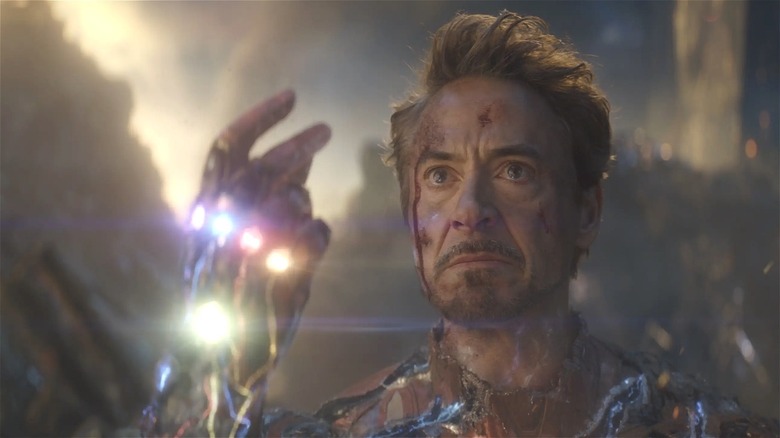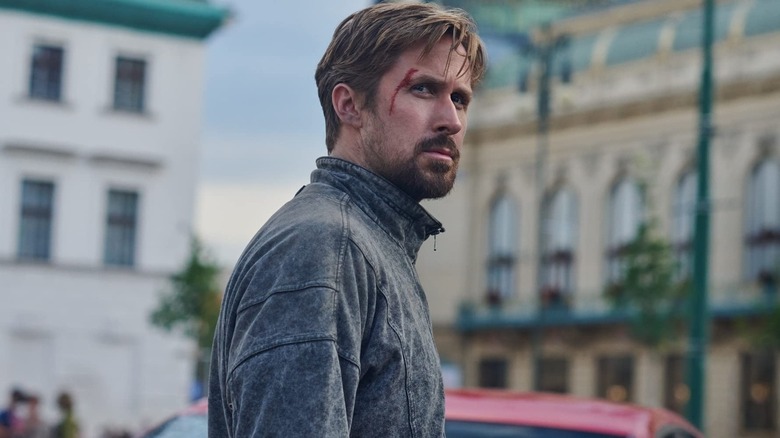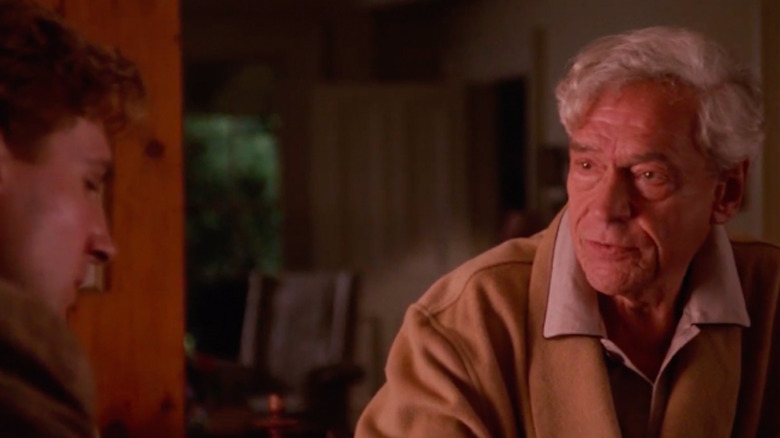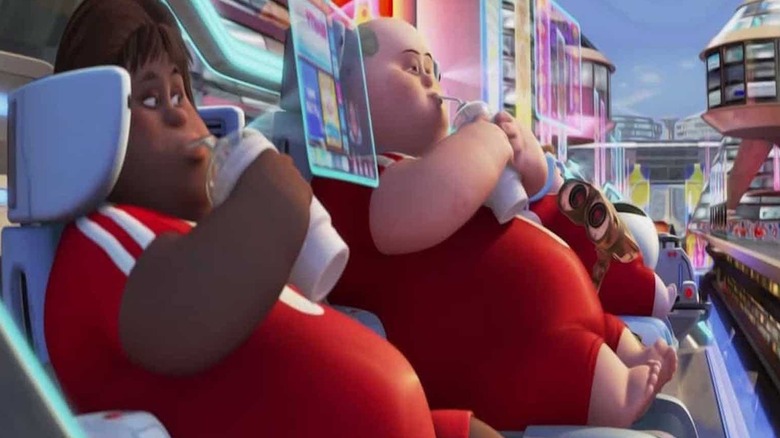Joe Russo's Vision Of A.I.-Driven Entertainment Is The Garbage Future We Should Avoid At All Costs
Patton Oswalt once sagely joked that science is "all about coulda, not about shoulda." History is riddled with examples confirming his premise: the development of the A-bomb, Project MKUltra, and the advent of biological warfare. The worst of these achievements are irrevocable threats to humankind; the threat of nuclear war — which, if waged at full scale, would likely render most of the planet uninhabitable — will always be with us. Other thresholds, once passed, would render life barely worth living.
The growing popularity of ChatGPT has been a societal litmus test. People are understandably curious about the hot new technology. Goldbrickers at the professional and academic levels are downright ecstatic about its effort-saving applications. As the Artificial Intelligence model becomes more sophisticated, it will likely be able to churn out A-level analyses and essays. In time, ChatGPT and AI programs like it will be capable of generating novels, screenplays and, most chillingly, photoreal movies and television shows.
And "in time," according to blockbuster director Joe Russo, could be as soon as two years.
If you're not an artist, or a poor one, this is a gift. But if you make a living as a storyteller, this is a job-exterminating nightmare that, to paraphrase the monstrous William F. Buckley, leaves you standing athwart the forward march of science screaming "Stop!" And unlike Buckley's wicked cause, this is a righteous position.
Open the door to our intellectual demise, Hal
In an interview with Collider, Joe Russo postulated a disturbing future in which nine-to-fivers could unwind after work via custom-crafted movies. The filmmaker, who says he sits "on the board of a few AI companies," believes we are very close to "the democratization of storytelling." As to what that will look like, Russo offered this upsetting and frankly creepy vision:
"Potentially, what you could do with [AI] is obviously use it to engineer storytelling and change storytelling. So you have a constantly evolving story, either in a game or in a movie or a TV show. You could walk into your house and save the AI on your streaming platform. 'Hey, I want a movie starring my photoreal avatar and Marilyn Monroe's photoreal avatar. I want it to be a rom-com because I've had a rough day,' and it renders a very competent story with dialogue that mimics your voice. It mimics your voice, and suddenly now you have a rom-com starring you that's 90 minutes long. So you can curate your story specifically to you."
"Competent" is a generous assessment of the movies outside the Marvel Cinematic Universe that Joe has made with his brother Anthony Russo. They broke into the business with, appropriately, a remake called "Welcome to Collinwood." The film possesses neither the wit nor the visual buoyancy of the delightful caper flick it's based on, Mario Monicelli's "Big Deal on Madonna Street." They followed this up with the detestably unfunny rom-com "You, Me and Dupree," but found tremendous success as traffic-cop-directors on two of the best sitcoms ever produced: "Arrested Development" and "Community." Their ability to serve material brought them to the MCU, where they concluded the studio's Thanos saga with the satisfying duo of "Avengers: Infinity War" and "Avengers: Endgame."
When filmmakers become corporate servants
Since then, the Russos have churned out unwatchable trash. I couldn't be bothered to finish the insipid "Cherry" or "The Gray Man." They're anti-movies. They have production value and big stars, but they're devoid of soul. Entertainment Weekly film critic Owen Gleiberman once decried the generic state of Hollywood blockbusters by suggesting John Badham's "Bird on a Wire" should've been titled "Romantic Action Comedy." The Russos are absolutely working within these flavorless parameters, and they're making a load of money doing it.
Russo's excitement about "the democratization of storytelling" is sickening. It reminds me of the late-'90s enthusiasm over the internet's leveling of the media landscape. Granted, I'd probably be working in publicity had sites like Ain't It Cool News and Dark Horizons not drawn back the curtain on the Hollywood sausage factory, but I have no problem admitting I played a role in the cheapening of journalism. But knowing how that played out, and watching in horror as disinformation blazes across social media platforms via bots and regular folks who are ignorant of the guardrails that used to protect them from pernicious propaganda, my dander skyrockets when I hear someone praise the "democratization" of anything but government.
AI will put hundreds of thousands of people out of work. It will do to the entertainment industry what automation has done to car manufacturing. This is a tool that will only benefit the top earners, who are largely non-creatives. That a native of Cleveland, Ohio, a city that nearly died due to corporate greed, could back this kind of cold-hearted progress is heartbreaking. That he would do so imagining a working stiff coming home to personalized porn in which he gets to bang Marilyn Monroe (because let's be serious, this guy isn't looking to insert himself into "The Seven-Year Itch"), one of the most mistreated women in the history of movies, is indicative of an aloof cruelty that leaves me shaking with anger.
Something — or nothing — on your mind?
Joe Russo notes that Gen Z is already gleefully embracing the potential of AI, and, anecdotally, I'm not sure he's 100% right here. My 20-year-old nephew is an avid gamer, but he still likes to kick back and watch movies/television with his buddies. He goes to theaters sparingly, but he does go. Will he disappear down the AI rabbit hole once Russo's predicted future arrives? Perhaps. But I don't see it happening right now.
I'm 49 years old, which makes me Methuselah in technological terms. I'm no Luddite, but I am a human being, and I understand what is being lost here. The joy of creation is unmatched. I'll never forget the euphoria I experienced as a teenager upon completing the rough draft of my first screenplay. I get a buzz every time I turn in a piece like the one you're reading.
I think of the scene in Robert Redford's "Quiz Show" where Paul Scofield's Mark Van Doren shares what he believes to be a celebratory slice of cake with his son Charles (Ralph Fiennes), who is on the verge of finishing his book. He understands the elation, but Charles betrays his dismay. "Something on your mind?"
Mark will soon learn Charles has corrupted himself. His son has used his reputation as a public intellectual to sell a lie to the American public. "Quiz Show" is about smart, relatively principled people participating in their own ruin to perpetuate what feels like a white lie. Right now, there are millions of intelligent folks engaging with ChatGPT because they feel like it is a harmless indulgence.
Ceding the future to the bots
AI is the A-bomb of the mind. It will encourage intellectual apathy, which will almost certainly lead to physical lethargy. At some point in the not-too-distant future, we will be the bloated human observers of "Wall-E," people who slouch in their mobile seats, deriving manufactured happiness from fabricated experiences. And it will be enough because, when I'm long gone, humans won't remember the ecstasy of finishing a story only they could tell. We will be in thrall to a hive brain that we created. We won't matter. Nothing will matter. We will be the authors of our own irrelevance. And Joe Russo, who is on the chair of these mind-numbing companies, will die a very wealthy man.




